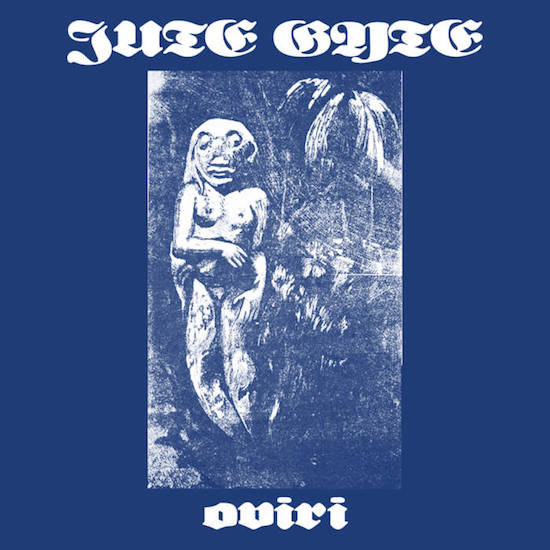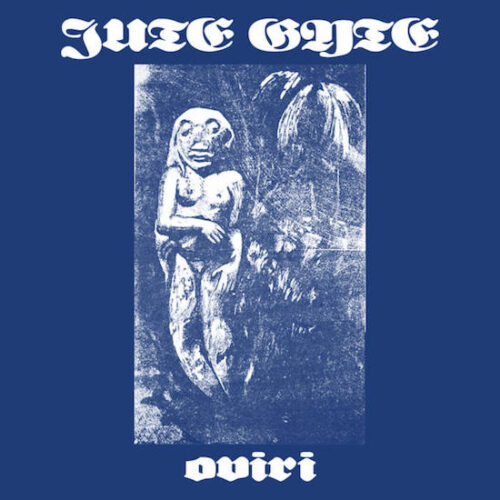When tQ interviewed him last year, Missourian musician Adam Kalmbach – who records as Jute Gyte – noted how Thomas Ligotti’s Conspiracy Against The Human Race had rendered all of the author’s earlier fiction obsolete, mere rough drafts of this crowning achievement. Kalmbach’s new record Oviri carries a similar air of accomplishment.
Stretched over more than two dozen records and split between aggressive, chaotic black metal and industrial on one side and ambient and noise-tinged experimental electronic music on the other, Jute Gyte’s discography resembles a series of snapshots of a constantly evolving musical exploration. Framed like that, Oviri becomes an ephemeral and local culmination of the project’s output, a climax that brings together these two apparently disparate but unequivocally connected strains of Kalmbach’s oeuvre.
A sonic architect rather than an instrumentalist, Kalmbach sees sounds as raw material, amorphous elements for him to shape, transform, layer and connect. From afar, Oviri appears to be a convoluted, impenetrable alien structure. Its building blocks? An incessant storm of deconstructed and dissonant riffs chained to a 24-tone scale, which float above meshing rhythms and tempos. Twitchy, prickly drums, plucked and jangly strings, wavy bass lines, strident electronic effects and found sounds are woven into seemingly wrong sequences. As Kalmbach switches from brisk, harsh blows to slowly developing, broad strokes, he summons quiet and unsettling ambient intermezzos, haunted by digitally processed voices and eerie noises.
But there are also more traditionally visceral and appealing riffs here, hidden beneath layers of insanity. Whether it’s faster and meaner cuts like the opening ‘Democritus Laughing’, slower romps with sumptuously pumping basslines and continuous crescendos like ‘Mice Eating Gold’ or almost-harmonious tunes like ‘Yarinareth, Yarinareth, Yarinareth’, the sonic pandemonium is captivating. There is no mystification in this utterly mystifying music as Kalmbach documents in detail his academic approach and method – often rooted in serialism.
Similarly, the thematic concerns of Oviri are philosophical, as grave and disconcerting as the music itself. In place of cartoonish satanism, Oviri is indebted to the likes of Arthur Schopenhauer and Thomas Metzinger while challenging notions of human consciousness and the sense of self. It digs into ‘cosmic pessimism’ and uncovers unbearable ideas that bring down defence mechanisms. It is a sobering, bleak and liberating vision.
Oviri is a cleaner, more focused and incisive record than its predecessors. You can enjoy it without understanding the underlying theory and framework. It’s also a passing monument to a driven, methodical mind. It presents a unique vision of metal that swerves pretentiousness and instead shows ways of expanding and reinventing the genre.



